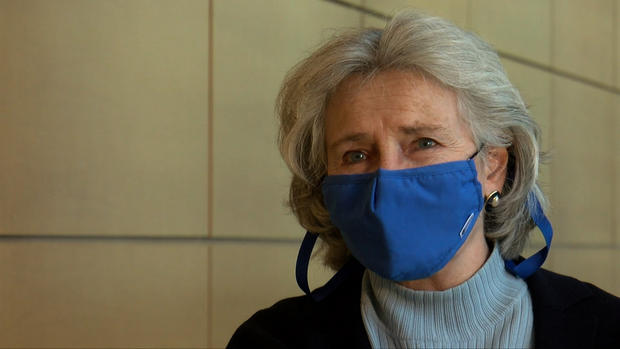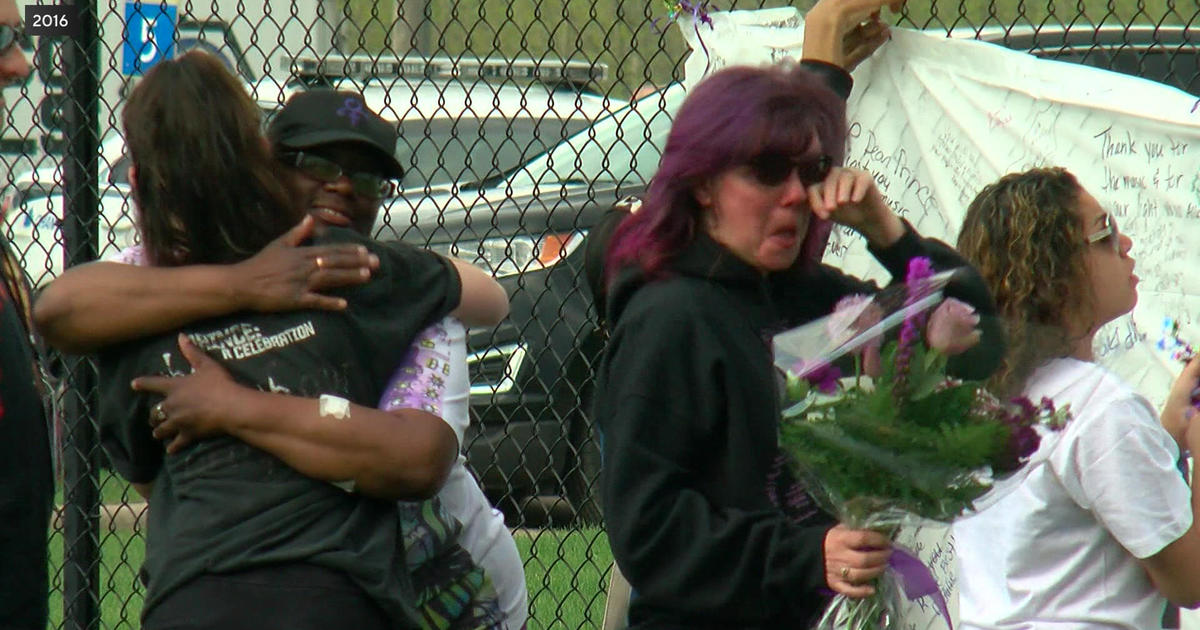'An Enormous Human Loss': MDH Commissioner Jan Malcolm Reflects On 1 Year Of COVID
MINNEAPOLIS (WCCO) -- She has been the public voice guiding Minnesotans through the unprecedented health crisis of COVID-19.
One year since the state first shut down, WCCO speaks one-on-one with Minnesota's health commissioner.
Jan Malcolm shared the mistakes made, successes celebrated and the personal heartbreak of her own.
First, we asked if she ever would have imagined a year ago if we would still be dealing with the pandemic.
"No, we could not have imagined just how disruptive this would be in every dimension of our lives," Malcolm said.
The truth is Malcolm was eyeing retirement just months before a global pandemic thrust public health systems into the spotlight.
"It's unprecedented that we've seen a virus spread to this degree at this scale with this many hundreds of millions of infections and opportunities for this virus to spread and mutate, which it's now doing," she said.
Her work directs the Minnesota Department of Health and its 1,400 employees with the mission of improving the health of all who call the state home.
This last year her guidance has been both appreciated and attacked by the people she is charged with protecting.
"I won't say that it doesn't sting to get the criticisms. My use of social media has changed. I don't go on social media as much as I used to," she said.
All while a heated campaign season seemed to add more scrutiny.
"That was a whole new dimension to trying to manage an infectious disease outbreak, to have to do it through a lens of people not believing the same set of facts," she said.
Still, Malcolm understands the frustrations from so many lives upended.
"It's been an enormous human loss," she said.
It's been that loss of nearly 7,000 people from COVID-19 that has weighed on her most.
"We can never stop remembering that all of those numbers are people, are loved ones, are parents and spouses and friends and family and colleagues," she said.
The commissioner has friends who lost their parents to COVID. In 2020 she had plenty of her own heartbreak, with the loss of her spouse in January to cancer and her 90-year-old mother in September.
She says in a way the pandemic has helped distract from her own pain.
Her calm, almost comforting, delivery a staple in countless briefings.
"There's just so much we didn't know at the beginning that we've learned along the way," she said.
Malcolm says the first mistake was made underestimating the role people played who showed no symptoms of the virus.
"We thought the role of asymptomatic spread was quite low and now we know that the latest data out of the CDC is fully 40 to 50% of the transmission is from people who don't even know they have it," she said.
The combination of that knowledge, inadequate testing and PPE, MDH believes was behind the high case counts in long-term care facilities, where more than 60% of the state's deaths were recorded.
"In hindsight we wish we had long-term care more prominent in our emergency preparedness plan. That's certainly a powerful lesson learned for the future, is the importance of a long-term care sector in dealing with any of these health emergencies," Malcolm said.
Another regret came in October when cases were climbing.
"In the fall surge I wish that we had acted a little sooner than we did," she said.
Malcolm believes they waited too long to close restaurants, pause sports and tell people to re-think their holiday plans.
More Minnesotans died in that stretch than in any other.
"I think we've learned now that when case growth gets to a certain level it's really easy for it to tip into that exponential growth phase. We just kept hoping it would slow down," she said.
Overall, the commissioner believes the mitigation strategies worked.
According to the CDC, Minnesota recorded lower case counts and death rates than neighboring states.
What remains to be seen is the fallout from the economy and distance learning.
We asked if we really know if Minnesota got that right or if the cost will be too high.
"I think the immediate reactions to close schools was quite a natural one. Now, it's been a key priority of the governor's to get kids back into in-person learning. Getting kids back into school is a huge priority. We are very eager to get kids back in school for all kinds of reasons," she said.
"We're in much better shape now and we've very grateful for that," she added.
As we mark one year, Malcolm hopes we are a few months away from a real end with the variants the only remaining wild card.
"It's taken a big toll on everyone," she admits.
With one more familiar plea of personal responsibility to make that happen.
"We all have a part to play in making sure that that comes true by keeping up our vigilance right now," she said.




